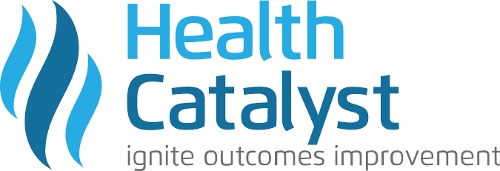 The Pistoia Alliance, a global, not for profit alliance that works to lower barriers to innovation in life sciences R&D, is calling upon the industry to improve collaborative efforts to use patient data to its full effect. In a series of keynote speeches delivered at The Pistoia Alliance’s annual member conference in London, speakers from Amgen, Accenture and AstraZeneca, discussed the need to more closely connect outcomes data with the R&D process – to help pharmaceutical companies focus their research efforts and deliver real benefits to patients. Building machine learning and deep learning systems, and incorporating data from therapeutic interventions or diagnostics into R&D is technologically challenging, and would benefit significantly from industry-wide pre-competitive collaboration...
The Pistoia Alliance, a global, not for profit alliance that works to lower barriers to innovation in life sciences R&D, is calling upon the industry to improve collaborative efforts to use patient data to its full effect. In a series of keynote speeches delivered at The Pistoia Alliance’s annual member conference in London, speakers from Amgen, Accenture and AstraZeneca, discussed the need to more closely connect outcomes data with the R&D process – to help pharmaceutical companies focus their research efforts and deliver real benefits to patients. Building machine learning and deep learning systems, and incorporating data from therapeutic interventions or diagnostics into R&D is technologically challenging, and would benefit significantly from industry-wide pre-competitive collaboration...
deep learning
See the following -
Survey: Healthcare Execs See Poor ROI from EHRs but Optimistic about Analytics
 The billions in taxpayer dollars spent on electronic health records (EHRs) since 2009 have unfortunately generated a poor return for the nation’s healthcare system, according to a survey of more than 1,100 healthcare professionals conducted by Salt Lake City-based data analytics vendor Health Catalyst. Health Catalyst polled healthcare professionals attending the fourth annual Healthcare Analytics Summit September 12-14 in Salt Lake City...
The billions in taxpayer dollars spent on electronic health records (EHRs) since 2009 have unfortunately generated a poor return for the nation’s healthcare system, according to a survey of more than 1,100 healthcare professionals conducted by Salt Lake City-based data analytics vendor Health Catalyst. Health Catalyst polled healthcare professionals attending the fourth annual Healthcare Analytics Summit September 12-14 in Salt Lake City...
- Login to post comments
Survey: Healthcare Technology Pros See Poor Return On Investment from EHRs
 The billions in taxpayer dollars spent on electronic health records (EHRs) since 2009 have unfortunately generated a poor return for the nation’s healthcare system, according to a survey of more than 1,100 healthcare professionals attending the fourth annual Healthcare Analytics Summit™ (HAS 17), Sept. 12-14 in Salt Lake City. Fortunately, survey respondents also overwhelmingly signaled that analytics software—a technology designed to make the clinical data in EHRs more valuable—holds great promise for the future...
The billions in taxpayer dollars spent on electronic health records (EHRs) since 2009 have unfortunately generated a poor return for the nation’s healthcare system, according to a survey of more than 1,100 healthcare professionals attending the fourth annual Healthcare Analytics Summit™ (HAS 17), Sept. 12-14 in Salt Lake City. Fortunately, survey respondents also overwhelmingly signaled that analytics software—a technology designed to make the clinical data in EHRs more valuable—holds great promise for the future...
- Login to post comments
The Emergence of Artificial Intelligence And Why Open Source Matters
 Sharing knowledge and sharing code has always been a key driver for innovation in Artificial Intelligence. Researchers have gathered together since AI was established as a field to develop and advance novel techniques, from Natural Language Processing to Artificial Neural Networks, from Machine Learning to Deep Learning. The Open Source community has played a key role in advancing AI and bringing it to solve real-world problems. Libraries and frameworks like TensorFlow, PyTorch, Keras, and Scikit-learn, for example, have allowed researchers and data scientists to study and make use of AI.
Sharing knowledge and sharing code has always been a key driver for innovation in Artificial Intelligence. Researchers have gathered together since AI was established as a field to develop and advance novel techniques, from Natural Language Processing to Artificial Neural Networks, from Machine Learning to Deep Learning. The Open Source community has played a key role in advancing AI and bringing it to solve real-world problems. Libraries and frameworks like TensorFlow, PyTorch, Keras, and Scikit-learn, for example, have allowed researchers and data scientists to study and make use of AI.
- Login to post comments
The Growing Rivalry Between Google and IBM
 Still the growing rivalry is unmistakeable. Very few companies are capable of developing this type of deep learning technology and clearly, both IBM and Google are leading the pack. To be sure, other companies such as Facebook and Microsoft are also developing capabilities in this area, but up to this point at least, they don’t seem to have made quite as much progress.
Still the growing rivalry is unmistakeable. Very few companies are capable of developing this type of deep learning technology and clearly, both IBM and Google are leading the pack. To be sure, other companies such as Facebook and Microsoft are also developing capabilities in this area, but up to this point at least, they don’t seem to have made quite as much progress.
- Login to post comments
The Pistoia Alliance Calls on the Life Sciences to Support Greater Collaboration to Overcome Technology Challenges
- Login to post comments
The Renaissance Continues for Open Source Artificial Intelligence
Recently, in an article for TechCrunch, Spark Capital's John Melas-Kyriazi weighed in on how startups can leverage artificial intelligence to advance their businesses or even give birth to brand new ones. As a corollary avenue on that topic, it's worth noting that some very powerful artificial intelligence engines have recently been open sourced. Quite a few of them have been tested and hardened at Google, Facebook, Microsoft and other companies, and some of them may represent business opportunities...
- Login to post comments
This Actually Is a Test
 When it comes to health care, testing is not what it used to be, or what it is going to be in the not-too-distant future. For example, confirmation of a cancer diagnosis is getting much easier. The New York Times reported that blood tests -- known as "liquid biopsies" -- have now been shown to generally match the results of a tumor biopsy. The blood tests look for DNA fragments from the tumor that signal its presence. The liquid biopsies are useful for both detecting the presence of a tumor and its ongoing monitoring. The current generation of tests are not perfect, with as many as 15% of tumors not generating enough DNA to be detected, but they do offer the advantage of not requiring an invasive procedure...
When it comes to health care, testing is not what it used to be, or what it is going to be in the not-too-distant future. For example, confirmation of a cancer diagnosis is getting much easier. The New York Times reported that blood tests -- known as "liquid biopsies" -- have now been shown to generally match the results of a tumor biopsy. The blood tests look for DNA fragments from the tumor that signal its presence. The liquid biopsies are useful for both detecting the presence of a tumor and its ongoing monitoring. The current generation of tests are not perfect, with as many as 15% of tumors not generating enough DNA to be detected, but they do offer the advantage of not requiring an invasive procedure...
- Login to post comments
To Err Is Human, To Diagnose Artificial Intelligence is...?
 A new study found that physicians have a surprisingly poor knowledge of the benefits and harms of common medical treatments. Almost 80% overestimated the benefits, and two-thirds overestimated the harms. And, as Aaron Carroll pointed out, it's not just that they were off, but "it's how off they often were." Anyone out there who still doesn't think artificial intelligence (AI) is needed in health care? The authors noted that previous studies have found that patients often overestimate benefits as well, but tended to minimize potential harms. Not only do physicians overestimate harm, they "underestimate how often most treatments have no effects on patients -- either harmful or beneficial"...
A new study found that physicians have a surprisingly poor knowledge of the benefits and harms of common medical treatments. Almost 80% overestimated the benefits, and two-thirds overestimated the harms. And, as Aaron Carroll pointed out, it's not just that they were off, but "it's how off they often were." Anyone out there who still doesn't think artificial intelligence (AI) is needed in health care? The authors noted that previous studies have found that patients often overestimate benefits as well, but tended to minimize potential harms. Not only do physicians overestimate harm, they "underestimate how often most treatments have no effects on patients -- either harmful or beneficial"...
- Login to post comments
To Trust Artificial Intelligence, It Must Be Open And Transparent. Period.
 Machine learning has been around for a long time. But in late 2022, recent advancements in deep learning and large language models started to change the game and come into the public eye. And people started thinking, “We love Open Source software, so, let’s have Open Source AI, too.” But what is Open Source AI? And the answer is: we don’t know yet. Machine learning models are not software. Software is written by humans, like me. Machine learning models are trained; they learn on their own automatically, based on the input data provided by humans. When programmers want to fix a computer program, they know what they need: the source code. But if you want to fix a model, you need a lot more: software to train it, data to train it, a plan for training it, and so forth. It is much more complex. And reproducing it exactly ranges from difficult to nearly impossible.
Machine learning has been around for a long time. But in late 2022, recent advancements in deep learning and large language models started to change the game and come into the public eye. And people started thinking, “We love Open Source software, so, let’s have Open Source AI, too.” But what is Open Source AI? And the answer is: we don’t know yet. Machine learning models are not software. Software is written by humans, like me. Machine learning models are trained; they learn on their own automatically, based on the input data provided by humans. When programmers want to fix a computer program, they know what they need: the source code. But if you want to fix a model, you need a lot more: software to train it, data to train it, a plan for training it, and so forth. It is much more complex. And reproducing it exactly ranges from difficult to nearly impossible.
- Login to post comments
VA Collaborating With Flow Health to Bring Artificial Intelligence and Precision Medicine to Veterans
 Flow Health today announced that it has formed a five-year partnership with the U.S. Department of Veterans Affairs (VA) to build a medical knowledge graph with deep learning to inform medical decision-making and train artificial intelligence (AI) to personalize care plans. The partnership’s fundamental objective is to understand the common elements that make certain people susceptible to particular diseases, pinpointing effective treatments and identifying possible side effects in order to inform care decisions...
Flow Health today announced that it has formed a five-year partnership with the U.S. Department of Veterans Affairs (VA) to build a medical knowledge graph with deep learning to inform medical decision-making and train artificial intelligence (AI) to personalize care plans. The partnership’s fundamental objective is to understand the common elements that make certain people susceptible to particular diseases, pinpointing effective treatments and identifying possible side effects in order to inform care decisions...
- Login to post comments
What Is Deep Learning, and Why Should You Care About It?
 Whether it's Google's headline-grabbing DeepMind AlphaGo victory, or Apple's weaving of "using deep neural network technology" into iOS 10, deep learning and artificial intelligence are all the rage these days, promising to take applications to new heights in how they interact with us mere mortals. To go deeper (yes, I went there) on the subject, I reached out to the team at the deep learning-focused company Skymind, creators of Deep Learning For Java (DL4J), and authors of the recently released O'Reilly book Deep Learning: A Practitioner's Approach, Josh Patterson and Adam Gibson...
Whether it's Google's headline-grabbing DeepMind AlphaGo victory, or Apple's weaving of "using deep neural network technology" into iOS 10, deep learning and artificial intelligence are all the rage these days, promising to take applications to new heights in how they interact with us mere mortals. To go deeper (yes, I went there) on the subject, I reached out to the team at the deep learning-focused company Skymind, creators of Deep Learning For Java (DL4J), and authors of the recently released O'Reilly book Deep Learning: A Practitioner's Approach, Josh Patterson and Adam Gibson...
- Login to post comments
Why the Healthcare Industry Is Hacking Graphics Technology to Power Machine Intelligence
Artificial intelligence has attracted significant attention recently, and yet many of the most popular examples we’ve seen demonstrating its potential benefits have been esoteric proof-of-concepts, such as mastering chess or finding cat videos on the internet. While these developments have helped pave the way for further breakthroughs, they’ve also left many people asking where the tangible benefits are and what the era of machine intelligence really means to the real world...
- Login to post comments
Disaster Crowdsourcing Exchange - FEMA's Disaster Hackathon
Disasters like Hurricanes Harvey, Irma, Maria and the California Wildfires have unprecedented impacts on our Nation, but digital volunteers can be a powerful force in helping with the disaster response and recovery efforts! Come participate in FEMA's Disaster Crowdsourcing Exchange on Saturday, October 21. Learn about FEMA's current crowdsourcing coordination efforts, participate in building new projects, experiment with new tools, and shape the future of crowdsourcing in emergency management.
- Login to post comments